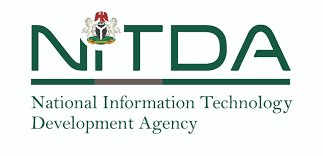The National Information Technology Development Agency (NITDA) and the Jigawa State Government are collaborating to provide Almajiri and out-of-school children with essential digital skills.
This initiative was announced during a meeting between NITDA’s Director General, Kashifu Inuwa, and the Executive Secretary of the Jigawa State Tsangaya Education Board, Abubakar Maje Hamisu.
Hamisu stated that the state government plans to establish three mega schools, each with the capacity to accommodate 4,000 students. These schools will integrate formal education with digital literacy to modernize the Almajiri education system and equip students with essential technological skills.
“The initiative aims to bridge the digital divide, empowering Almajiri children with knowledge that will enhance their future opportunities and improve their socioeconomic conditions,” Hamisu said.
He further noted that the effort aligns with the government’s broader objective of revitalizing struggling schools through digital education.
### Nationwide Scalable Model
NITDA reaffirmed its commitment to expanding digital literacy and promoting inclusive access to technology-driven education. Inuwa directed his team to develop a scalable model that can be implemented nationwide.
This initiative aims to ensure that more marginalized children benefit from digital knowledge and innovation.
The collaboration between NITDA and the Jigawa State Government marks a crucial step in integrating digital skills into Nigeria’s education system. By bridging the digital divide, the initiative seeks to empower young learners with the tools they need to succeed in an increasingly technology-driven world.
### Understanding the Almajiri System
The Almajiri system refers to a traditional Islamic education practice in Northern Nigeria where young boys, known as Almajirai, are sent to Islamic schools (Tsangaya) to study the Quran under the tutelage of an Islamic scholar. Historically, this system provided religious education, but over time, many Almajiri children have been left to fend for themselves due to inadequate support. This has led to widespread poverty, child begging, and vulnerability to exploitation.
In 2023, President Muhammadu Buhari assented to a bill establishing the National Commission for Almajiri Education and Out-of-School Children. The bill, sponsored by Balarabe Shehu Kakale and 18 others, aims to tackle deprivation, exploitation, and illiteracy among vulnerable children in Nigeria.
The Commission will oversee skill acquisition and entrepreneurship programs for children and teenagers, reduce poverty, improve access to education, and address youth delinquency and destitution in Nigeria.

